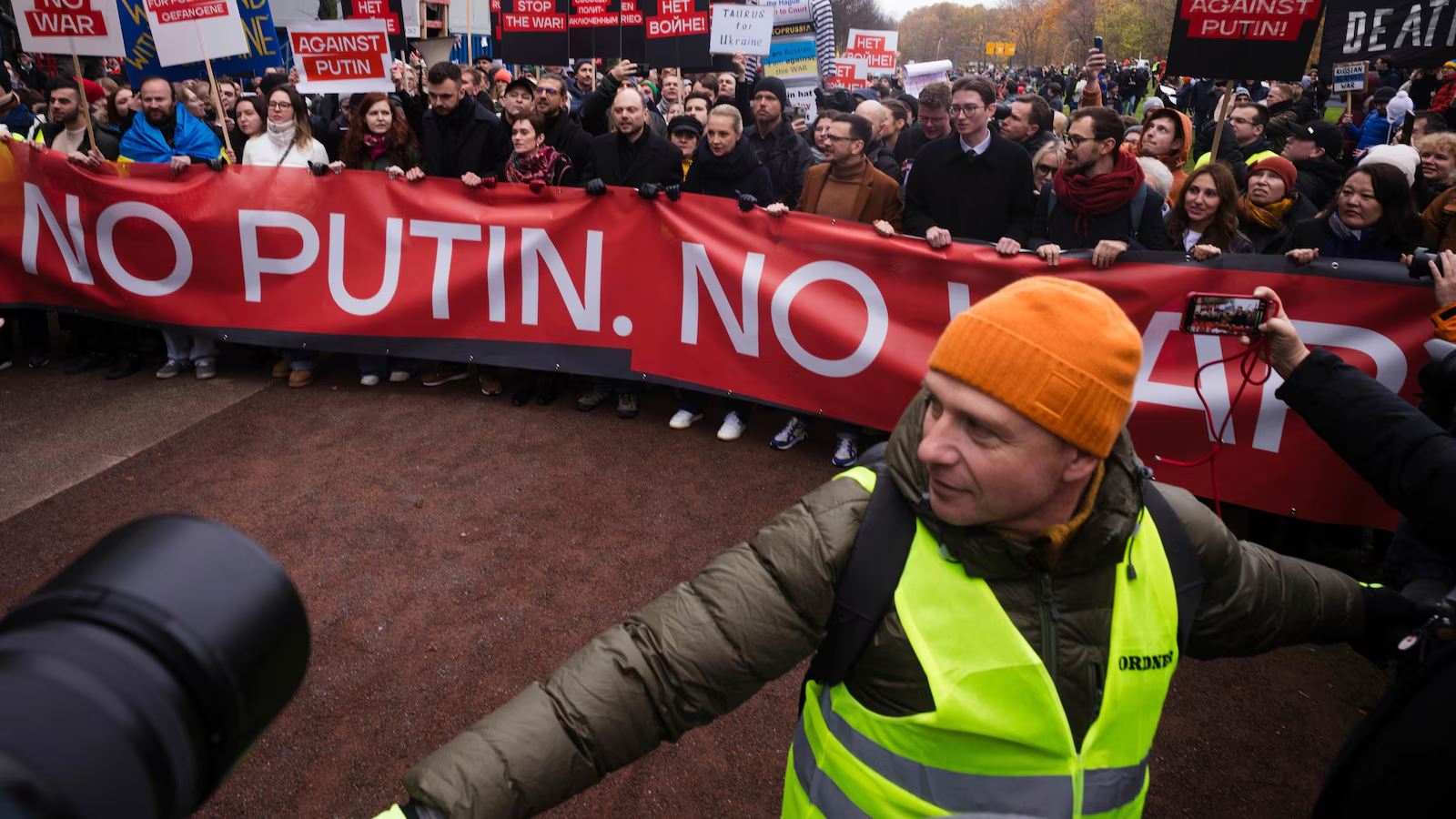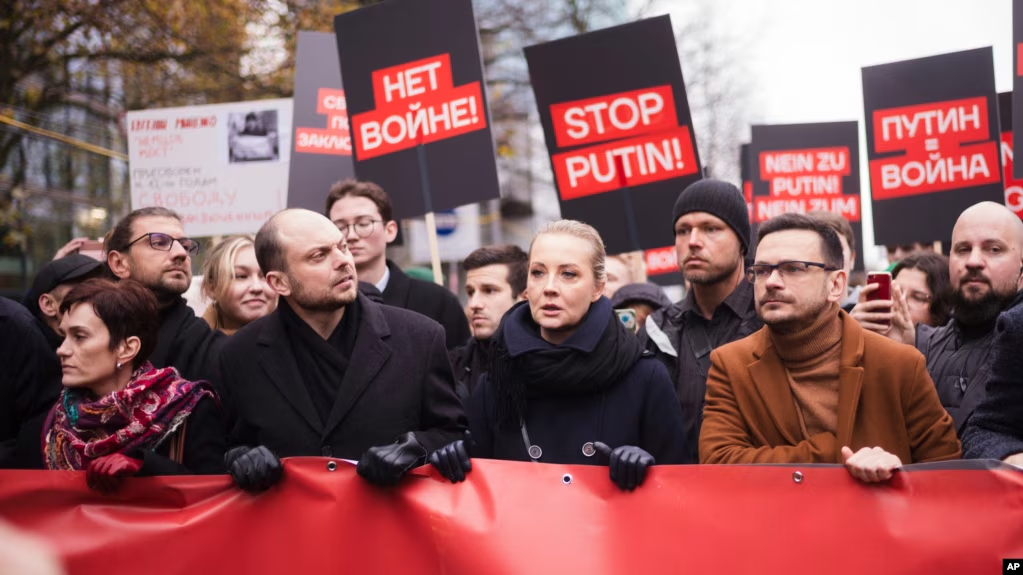More than 1,000 protesters marched through central Berlin Sunday in a rare show of unity among Russian opposition leaders, as Yulia Navalnaya, widow of Alexei Navalny, joined recently freed dissidents Ilya Yashin and Vladimir Kara-Murza in demanding President Vladimir Putin’s removal and an end to the Ukraine war.

Demonstrators gathered behind a banner reading “No Putin. No War,” chanting “Russia without Putin” and other slogans in Russian while carrying signs declaring “Putin = War” and “Putin is a murderer” in German. The protest route wound symbolically through Berlin’s historic center, from Potsdamer Platz past the Brandenburg Gate and Checkpoint Charlie before concluding at the Russian Embassy.
“We’re using the freedom we have here in Berlin to show the world: A peaceful, free, and civilized Russia exists,” Yashin said in a statement before the demonstration, where protesters carried Russian and Ukrainian flags alongside the white-blue-white banner adopted by some opposition groups.
The march, which organizers said aimed to demand “the immediate withdrawal of Russian troops from Ukraine, the trial of Vladimir Putin as a war criminal, and the release of all political prisoners in Russia,” comes at a crucial moment for Russia’s fractured opposition movement.

Despite hopes that August’s landmark prisoner exchange might reinvigorate anti-Putin forces following Navalny’s death in prison, recent months have seen increasing tensions among opposition groups. The movement has struggled to present a unified front or clear strategy, with prominent dissidents trading public accusations that have disappointed many opposition supporters.
The Berlin demonstration represents an attempt to overcome these divisions, with Navalnaya, Yashin, and Kara-Murza billing the event as a show of unity at a critical time. However, the recent acrimony among anti-war factions has left many opposition-minded Russians frustrated with what they see as counterproductive power struggles between rival groups.
The protest highlights both the potential and challenges facing Russia’s exiled opposition as they attempt to maintain pressure on Putin’s regime while operating from abroad, with many key leaders now based in Western capitals following waves of repression within Russia.



